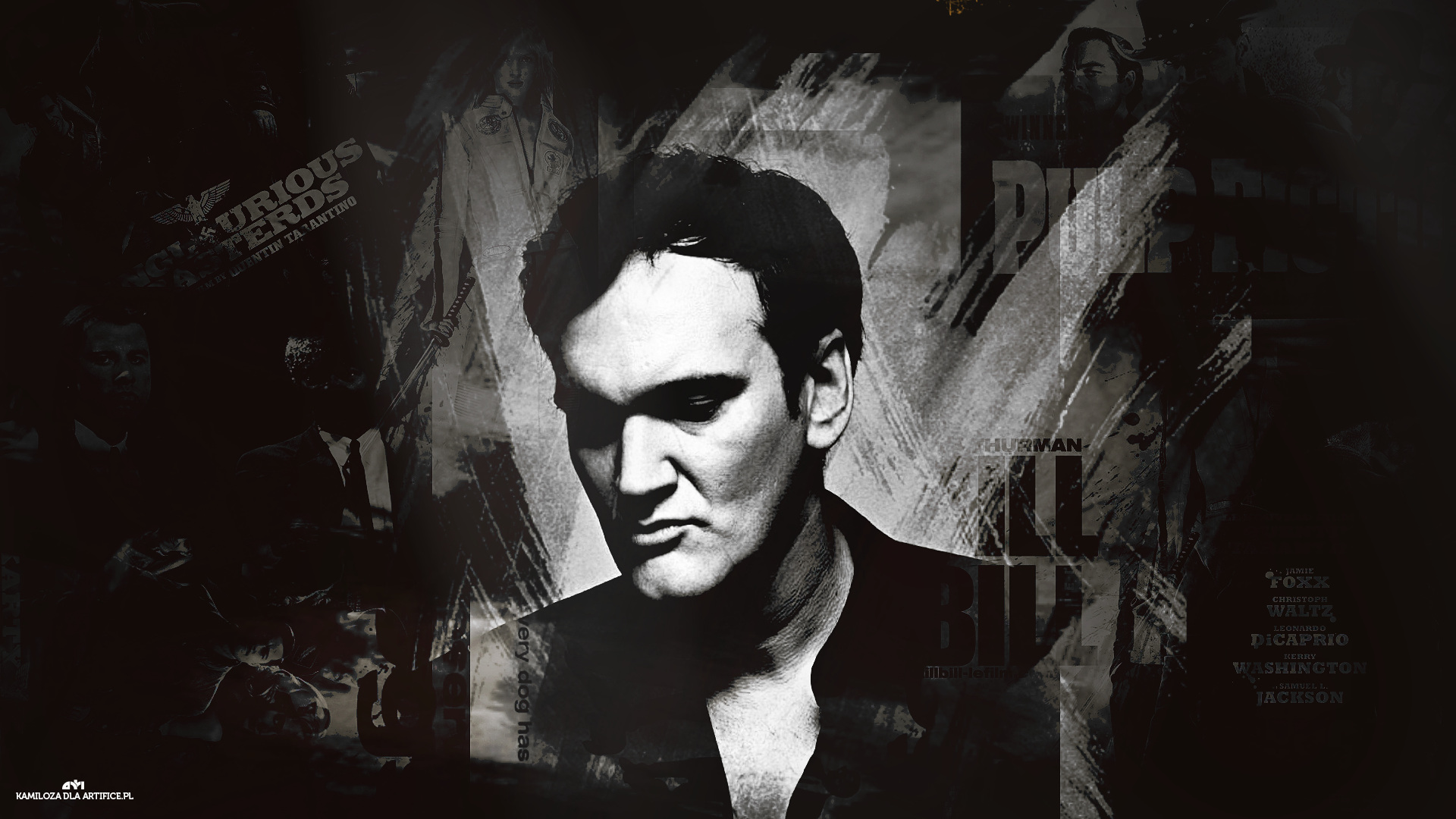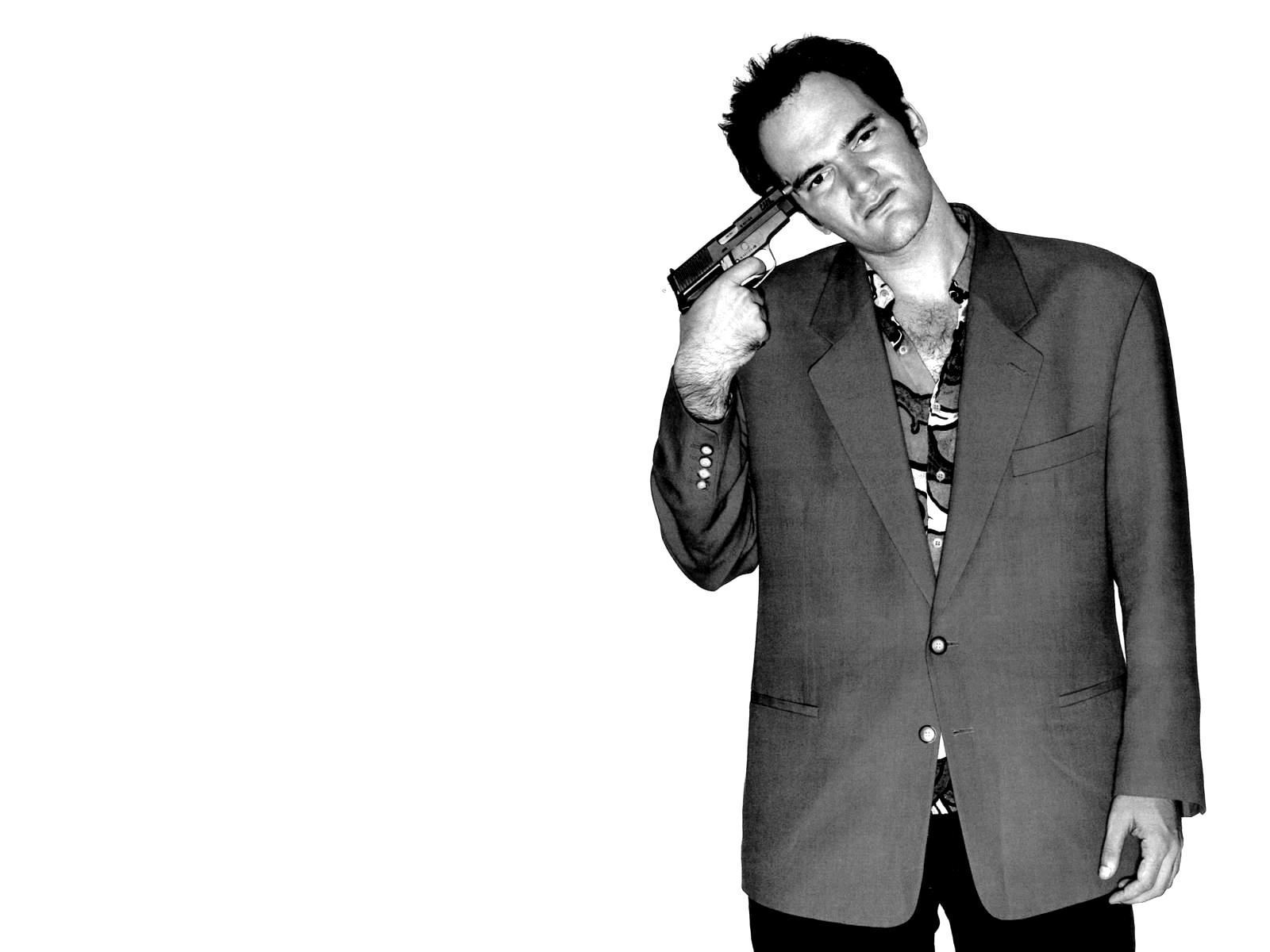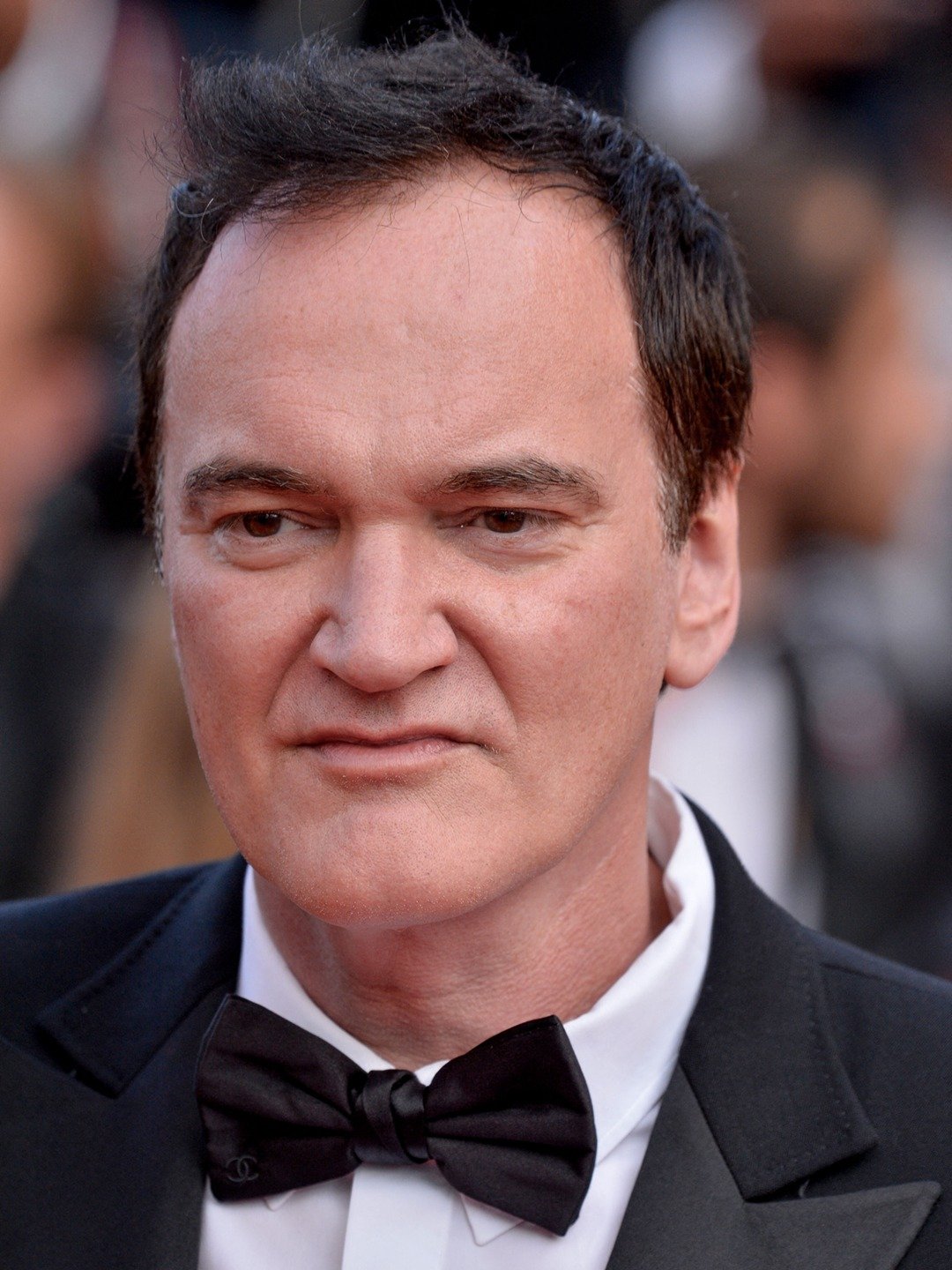Quentin Tarantino - A Maverick Filmmaker's Creative Path
There are certain names in the world of movies that just, you know, really stick with you, leaving a big mark on how we see stories unfold on the screen. One such person, a true original, is Quentin Tarantino. He's someone who has, in a way, reshaped a good bit of what we think a movie can be, bringing a fresh perspective that's pretty much all his own. His work often sparks conversations, sometimes quite lively ones, about what's shown and how it's presented, making him a figure many people talk about, for sure.
You see, his way of making films is rather distinctive, often featuring scenes that are, well, quite vivid and sometimes a little shocking, alongside conversations that just keep going, sometimes for a long stretch of time. These elements, among others, really make his movies stand apart from the usual fare you might find. It's this particular blend of style and substance that has, in some respects, drawn in a huge following, making his creations something many folks look forward to experiencing.
This discussion will take a closer look at the path this celebrated individual has taken, from his early days making independent films to becoming a recognized figure in cinema. We'll explore some of the films that made him famous, the folks he often works with, and what makes his way of telling stories so, actually, memorable. So, get ready to explore the creative world of this very unique director.
Table of Contents
- The Beginnings of Quentin Tarantino
- Personal Details and Bio Data of Quentin Tarantino
- What Makes Quentin Tarantino's Films Stand Out?
- Notable Works from Quentin Tarantino's Creative Mind
- Who Are the Familiar Faces in Quentin Tarantino's Movies?
- Quentin Tarantino's Unique Approach to Storytelling
- How Does Quentin Tarantino's Early Work Shape His Legacy?
- What's Next for Quentin Tarantino?
The Beginnings of Quentin Tarantino
Quentin Jerome Tarantino, a name that, you know, resonates with many who appreciate a certain kind of movie, came into this world on March 27, 1963. He was born in Knoxville, Tennessee, a place that, in a way, marked the very start of his life's story. From those beginnings, he would eventually grow into someone who wears many hats in the movie business. He's known as a person who makes films, someone who acts in them, and even someone who writes books, which is pretty cool, actually.
His early days saw him stepping into the world of independent filmmaking, which, you could say, was a crucial period for him. It was during the early 1990s that he really began to make his presence felt as a filmmaker working outside the big studio system. This period was, in some respects, where he started to shape the distinctive style that would eventually make him a household name among movie buffs. He was, more or less, forging his own path, learning the ropes and experimenting with different ways to tell a story on screen.
It's interesting to note that his very first film as a director was "Reservoir Dogs," which came out in 1992. That picture, you know, really got people talking and showed off his particular knack for crafting intense stories with memorable characters. Before that, he even penned the script for "True Romance" in 1993, a movie that, actually, Tony Scott directed. So, even in those early years, his writing talent was clearly on display, laying the groundwork for what was to come, definitely.
Personal Details and Bio Data of Quentin Tarantino
| Detail | Information |
|---|---|
| Full Name | Quentin Jerome Tarantino |
| Date of Birth | March 27, 1963 |
| Birthplace | Knoxville, Tennessee, United States |
| Primary Professions | Film Director, Screenwriter, Producer, Actor |
| Other Roles | Cinematographer, Author |
| Notable Films | Pulp Fiction (1994), Inglourious Basterds (2009), Django Unchained (2012), Kill Bill (Vol. 1 & 2) |
| First Directorial Film | Reservoir Dogs (1992) |
| Parental Background | Only child of Connie McHugh and aspiring actor Tony Tarantino (who left before his birth) |
What Makes Quentin Tarantino's Films Stand Out?
When you sit down to watch a film by Quentin Tarantino, you often find yourself experiencing something that feels, well, pretty unique. His movies have, you know, a certain signature about them that makes them instantly recognizable. For one thing, they frequently feature scenes that are, shall we say, quite vivid and sometimes a bit unsettling in their portrayal of intense actions. This visual style is, actually, a big part of what makes his pictures so talked about, for sure.
Another thing that truly sets his work apart is the way characters talk to each other. You'll notice that the conversations often go on for a long time, sometimes covering topics that seem, at first glance, unrelated to the main plot. These extended discussions, though, are a very important piece of his storytelling, giving you a deeper sense of the characters and the world they live in. It's a style that, in a way, draws you in and makes you pay close attention to every word, which is pretty clever.
He's also known for mixing different kinds of movie styles and references into his own work, creating something that feels, like, both new and familiar at the same time. You might spot elements from old Westerns, crime thrillers, or even martial arts films, all woven together in a fresh way. This blend of influences gives his movies a rich texture and, you know, makes them something that you can often watch more than once and still find new things to appreciate, which is quite a feat, really.
Notable Works from Quentin Tarantino's Creative Mind
Looking at the list of films Quentin Tarantino has brought to the screen, there are a few that, you know, really stand out and have become pretty much iconic. "Pulp Fiction," which came out in 1994, is definitely one of those. That movie, in some respects, changed the game for independent cinema and really put him on the map as a major creative force. It's known for its non-linear story, memorable characters, and those long, captivating conversations we talked about, which is pretty much his hallmark, actually.
Then there's "Inglourious Basterds," released in 2009, which takes a very different look at a historical period, but still with his unmistakable touch. This one, you know, really shows his ability to craft intense situations and, you know, keep you on the edge of your seat. Following that, "Django Unchained" in 2012 also made a big splash, further cementing his reputation for creating powerful, thought-provoking stories that, sometimes, push boundaries, which is something he tends to do.
And we can't forget the "Kill Bill" movies, specifically "Kill Bill: Volume 1" from 2003 and its follow-up. These films, you know, are a testament to his love for different movie genres, blending action, revenge stories, and a whole lot of style into a single, very engaging experience. They feature strong characters and, you know, really dynamic sequences that are, like, pretty much unforgettable, which is typical of his work, you could say.
Who Are the Familiar Faces in Quentin Tarantino's Movies?
One of the cool things about Quentin Tarantino's films is that you often see the same actors popping up in different projects. It's almost like he has a trusted group of performers he really likes to work with, and they, you know, often deliver incredible performances for him. For instance, folks like Harvey Keitel, Tim Roth, and Michael Madsen have appeared in several of his early works and continued to be part of his creative circle, which is pretty neat.
Later on, as his career progressed, other actors also became closely associated with his unique style of storytelling. Uma Thurman, for example, has had some truly memorable roles in his movies, particularly in "Pulp Fiction" and the "Kill Bill" series. Her performances, you know, are often central to the story and really help to bring his distinct characters to life, which is a big deal, actually. David Carradine, Daryl Hannah, and Lucy Liu are also actors who, in a way, left a significant mark in his films.
It's not just about the big names, though. He often casts actors who, you know, really fit the specific vibe of his stories, even if they're not always the most famous faces. This approach, you could say, helps to create a very consistent and immersive world within each of his pictures. He has a knack for getting the best out of his cast, which, you know, contributes a lot to why his movies feel so, actually, alive and compelling.
Quentin Tarantino's Unique Approach to Storytelling
Quentin Tarantino has a way of telling stories that is, well, pretty much unlike anyone else's. He doesn't always follow the usual rules of how a story should unfold, which is part of what makes his movies so engaging. Sometimes, he'll jump around in time, showing you bits and pieces of the story out of order, and then slowly, you know, put them all together for you. This kind of narrative structure keeps you on your toes and, actually, makes you think a little more about what's happening, which is a neat trick.
His writing, too, has a very particular flavor. The dialogue, as we touched on, is a huge part of it. Characters don't just say what's needed to move the plot along; they often talk about all sorts of things, sometimes mundane, sometimes philosophical, but always in a way that feels, you know, very real and, in some respects, quite captivating. This focus on conversation, rather than just action, gives his films a distinct rhythm and, you know, helps to build the world in a really immersive way, for sure.
He also has a deep appreciation for movies that came before him, and he often weaves elements from those older films into his own creations. This isn't just about copying; it's more about, you know, taking inspiration and putting his own fresh spin on it. So, you might see a nod to an old Western or a classic crime movie, but it's always done in a way that feels, actually, very original and, you know, part of his own unique vision. This kind of homage is, you could say, a big part of his creative process.
How Does Quentin Tarantino's Early Work Shape His Legacy?
The early films that Quentin Tarantino made, particularly "Reservoir Dogs," played a very important part in shaping the kind of filmmaker he would become. That first directorial effort, you know, really showcased his raw talent and his willingness to break from traditional storytelling methods. It had, in a way, all the ingredients that would later become his signature: intense dialogue, sudden bursts of action, and a story that kept you guessing, which is pretty much what he does, actually.
Being an independent filmmaker in those early years also gave him a lot of freedom to experiment and develop his own voice without the constraints of big studios. This period allowed him to, you know, really hone his craft and figure out what kind of stories he wanted to tell and how he wanted to tell them. It was during this time that he established himself as someone who had a clear, distinct vision, someone who wasn't afraid to, you know, do things his own way, which is a big part of his appeal, really.
So, those initial projects, like "True Romance" which he wrote, and "Reservoir Dogs" which he directed, laid the groundwork for everything that followed. They showed the world that a new kind of storyteller had arrived, someone who was, in some respects, ready to challenge expectations and create movies that were, well, pretty much unlike anything else out there. His early work, you know, truly set the stage for his later, more widely celebrated films, establishing a style that has, actually, left a lasting mark on cinema.
What's Next for Quentin Tarantino?
There's been quite a bit of talk about Quentin Tarantino's plans for his future in filmmaking, especially concerning his tenth movie. He has, you know, often mentioned that he intends to make only a certain number of films before stepping away from directing. This has led to a lot of speculation and excitement about what his final creative statement might be, which is pretty understandable, actually, given his track record.
He's also been pretty open about how his personal life is, you know, influencing his decisions these days. He's a dad now, and he's shared that he wants to make sure his children are old enough to have some memories of being around when he's making a movie. This shows a different side to him, a more personal one, and it suggests that his priorities are, in some respects, shifting a little bit, which is, you know, completely natural for anyone.
So, while the exact details of his next, and potentially last, film are still a bit under wraps, it's clear that whatever he chooses to do, it will be something that, you know, commands attention. His approach to storytelling and his unique vision mean that his projects are always highly anticipated. Whether he's working on a new script or just spending time with his family, his presence in the world of movies will, actually, continue to be felt for a long time, for sure.

Quentin Tarantino wallpaper | 1920x1080 | #64502

Quentin Tarantino - Quentin Tarantino Wallpaper (17086804) - Fanpop

Quentin Tarantino Pictures - Rotten Tomatoes